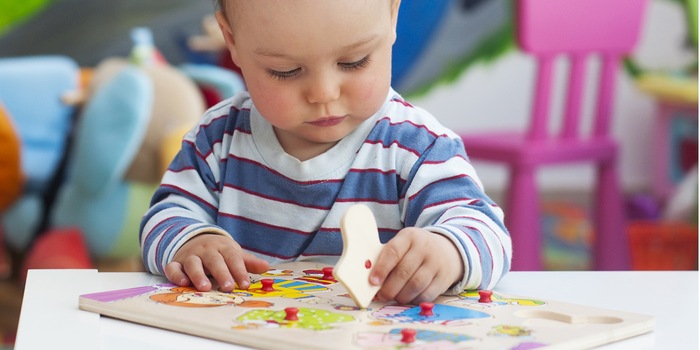
Babies learn better in the right mood
If we are in the same state of mind when storing and recalling information, we can remember it better. An experiment has shown that this is already true for infants.
If you are in the same emotional state during an exam as when you memorise the information, you can remember what you have learned better. This is also known as state-dependent memory. This phenomenon has been well studied in adults. But what does it look like in infants?
Psychologists led by Carolin Konrad from Ruhr University Bochum wanted to investigate the effects on early childhood memory performance in more detail and tested 96 babies aged nine months. In the first phase, the parents were asked to either play lively with the children for a few minutes or cuddle them quietly and read to them. Immediately afterwards, one of the researchers repeatedly performed certain actions with a hand puppet, which the children observed from their parents' laps. A short break was followed by another phase of play or rest. Some children experienced the same phase twice, while others alternated. The researcher then sat down with the doll next to the babies - whereupon they began to imitate the demonstrated actions.
Babies for whom the learning and retrieval conditions were the same (i.e. who either played twice or cuddled twice) were able to reproduce almost all actions on the doll. Babies who experienced one lively and one quiet phase, on the other hand, were unable to reproduce even one of the actions on average.
This suggests that mood swings can also prevent infants from accessing memory content, explains Sabine Seehagen, first author of the study. This may be one of the reasons why most adults cannot remember events that took place before the age of three, a phenomenon known as infantile amnesia.
Spectrum of science
We are partners of Spektrum der Wissenschaft and want to make well-founded information more accessible to you. Follow Spektrum der Wissenschaft if you like the articles.
[[small:]]
Experts from science and research report on the latest findings in their fields – competent, authentic and comprehensible.
From the latest iPhone to the return of 80s fashion. The editorial team will help you make sense of it all.
Show all